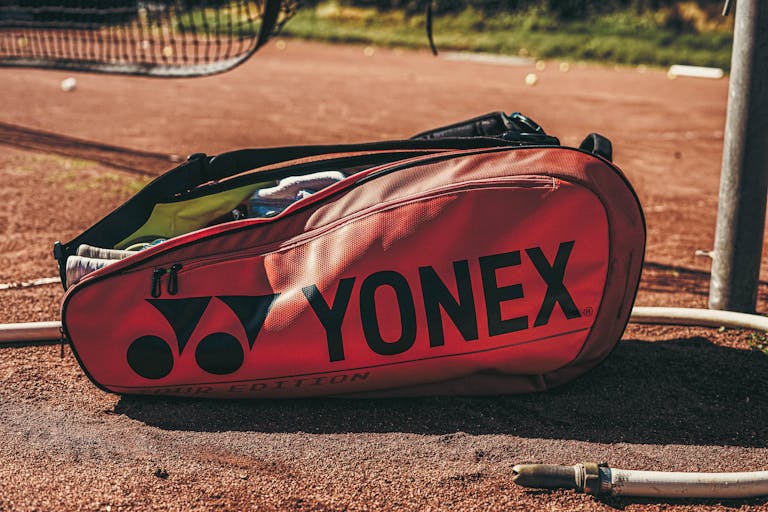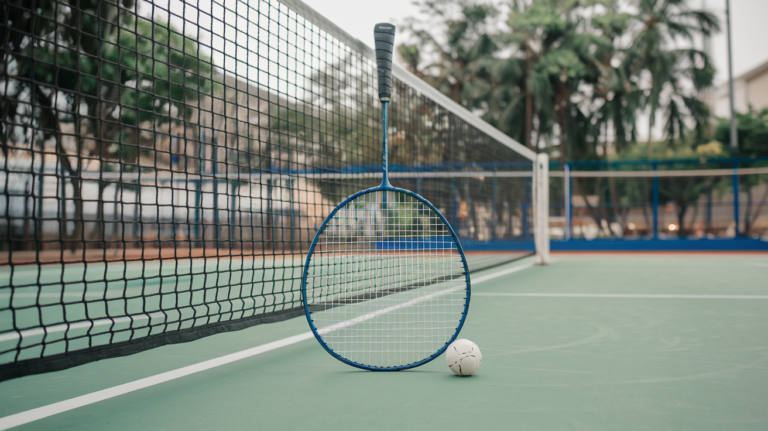Badminton nutrition refers to the food and beverages that keep players strong, sharp, and fleet of foot on the court. Proper badminton nutrition would consist of meals rich in lean protein, whole grains, vegetables, and fruit.
Keep in mind these pre-game, during-game, and after-game hydration tips, including which fluids are best! In the U.S., players’ go-to meals are chicken, eggs, brown rice, and fresh greens. They also switch to water or sports drinks for hydration.
Quick snacks such as bananas or peanut butter toast work great between games. Plus, they are super convenient for eating on the go and maintaining your energy levels! Proper nutrition improves concentration, reaction speed, and consistent performance, making it an essential training component.
The central portion details what to eat, when, and why it matters for each match type.
Badminton Fuel: Why Food Matters

Nutrition truly is at the heart of every excellent badminton performance. Everything you eat reflects your overall energy, concentration, and recovery. So if you’re playing in Los Angeles, or any other major city, the commute and daily grind can be brutal.
To outsmart the competition, you require intelligent fuel! A well-balanced diet, with about 60 to 70 per cent carbs, brings both the stamina for long rallies and the bounce-back after challenging games. Carbs are key fuel, folks! You require more protein to repair muscle, at least 1.5 grams per kilogram of body mass.
Fruits and vegetables provide valuable vitamins and minerals that help maintain a healthy body and stay ready to compete.
Food’s Real Impact on Your Game
The real effect food has on your game is significant. Foods like whole grains, rice, or pasta, consumed about 1.5 hours before a match, provide long-lasting energy. Lean meats and dairy provide the protein needed to repair muscle damage.
A colourful combination of berries, oranges, and dark leafy greens will help you feel your best. It’s loaded with micronutrients that reduce the risk of cramps and injuries! Hydration is equally important!
To keep your mental and physical game as sharp and fast as possible, shoot for a minimum of 2 liters of water per day. Healthy foods support your sharp mental focus and quick reflex responses. This will keep your head in the match when it comes down to the wire!
After you play, a meal with a 1:3 or 1:4 protein-to-carb ratio helps muscles heal and gets you ready for the next round.
Energy Balance for Court Dominance
Understanding energy balance and knowing your daily caloric requirements will help you stay in the game and help you dominate the court! Under fuel and you may run out of gas quickly. Too little, and you’ll feel sluggish.
Keep an eye on weight for any drastic changes—this can be an early indicator of overtraining or nutrient deficiencies. Be ready to make modifications as your life, schedule, or training evolves.
Listen to your body for signs of fatigue or hunger!
Essential Nutrients for Badminton Players

Having a balanced diet rich in these essential nutrients provides a great foundation for any badminton player wanting to take their game to the next level. Consuming the proper balance of these nutrients is critical to achieving optimal performance, rapid recovery and maintaining overall health through the rigors of consistent play.
The most effective nutrition strategies replace processed foods with whole foods, providing athletes sustained energy and long-term gains.
1. Carbohydrates: Power Your Play
Carbohydrates provide most of the energy needed for badminton and should comprise 60–70% of a player’s diet. Complex carbs from whole grains such as brown rice, oatmeal, and quinoa help maintain energy levels throughout intense, extended matches.
Fresh fruits and veggies add fast-burning energy and nutrients. Planning carb intake around training—like a bowl of oatmeal before practice or a banana during breaks—keeps energy up and helps avoid fatigue.
2. Protein: Rebuild and Recover Stronger
Protein helps with muscle repair and growth, which is important after intense training or competition. About 15% of your daily calorie intake should be made up of protein dense foods.
Good choices include lean meats, eggs, tofu, and dairy. Eating protein consistently throughout the day accelerates recovery and increases strength. Have eggs to start the day, chicken or beans for lunch, and Greek yogurt after your game.
3. Healthy Fats: Fueling Long Rallies
Healthy fats provide long-lasting energy. Avocados, nuts, olive oil, and fish are great sources of healthy fats and omega-3 fatty acids, which help combat inflammation resulting from hard training sessions.
These fats help maintain energy levels through intense, extended rallies. Limiting saturated or trans fat helps maintain heart health and stamina.
4. Micronutrients: Your Performance Boosters
Vitamins such as vitamin D, C, and B vitamins are essential for healthy bones, immune function, and energy production. A rainbow of fruits and vegetables, along with nuts and seeds, will fill those gaps.
A supplement is only necessary if a diet is inadequate. In particular, when games are highly strenuous or extended in duration, electrolytes from sports drinks can provide further support.
Game Day Nutrition Strategy
A strategic sports nutrition plan on game day can significantly assist badminton players in maintaining their energy levels, focus, and quick recovery. The choices of food, meal timing, and hydration all play a crucial role in how a player feels and performs. By planning and testing what works, players can develop a routine that optimizes their badminton performance from warm-up to final point.
Pre-Match Fueling: My Secrets
An ideal pre-match meal doesn’t need to be complicated — keep it simple and light, mostly easy carbs with some lean protein. Oatmeal with banana and a boiled egg or turkey sandwich on white bread are good options. The goal here is to replenish glycogen stores, but without the high-fat or greasy foods.
Eating 2–3 hours prior to game time allows the food to digest, preventing any possible cramping or sluggish feeling during your sport. Most players will eat the same thing before each match to remain consistent and feeling sure of themselves. Sound judgment would dictate testing various foods in practice to know which provides the most kick and minimal kick-in-the-gut.
On-Court Energy: Quick Boosts
Quick snacks are a game changer during close matches. Orange slices, small bananas, or a handful of pretzels are great for quick carbs. During long games that are particularly sweaty, sports drinks can be beneficial to help maintain electrolytes.
Pay attention to how you feel—if energy starts to lag, eat a few bites before going back on the court. This approach of eating a little bit every 3–4 hours, including short tournament breaks, can provide an energy boost without overloading and feeling heavy.
Post-Match: Smart Recovery Protocol
Recovery starts with a mix of carbs and protein, like chocolate milk or a chicken wrap with rice, aiming for a 1:4 protein-to-carb ratio. Don’t forget hydration. Your first concern should be hydration, so have water or a low-sugar sports drink available.
Incorporate berries or other dark-skinned produce like leafy greens to combat soreness and inflammation and expedite recovery. Frequent, smaller meals help maintain energy levels leading into the next match or training.
Hydration: The Unseen Advantage
In badminton, staying on top of hydration needs to be a priority as much as choosing the best racket or shoes. Water is more than a thirst quencher. It’s an unseen advantage that makes a real difference in staying fresh, fast, and locked in on the court!
Even mild dehydration is enough to slow you down, leaving you fatigued and every rally harder than it needs to be. Most players are going to be sweating out an average of one liter per hour. Research has indicated that often game-day dehydration is less than 1%. However, even minimal losses of 1% can affect performance.
Why Water Really Wins Matches
Not being able to recognize symptoms of dehydration could result in lost points. Dry mouth, light-headedness, or even that sudden lack of energy all come on quickly. Setting hydration targets according to your personal sweat rate, and the conditions on the day in question, go a long way.
Take Los Angeles, where local indoor gyms are often hot and humid, making timely access to water all the more important. Some players report setting alarms on their phones to remind them to take a sip every 15 minutes when going through long competitive rallies or practices.
Smart Drinking: Player Guidelines
A strong hydration strategy begins well in advance of game time. A few pros in the U.S.—like FC Cincinnati’s Brenner—swear by it. They consume two or three glasses of water in the hours leading up to a game!
Add electrolyte drinks when your workout or game is longer than one hour. This is even more critical if you’re a heavy sweater! Focusing on how much you’re drinking based on practice time and intensity prevents you from hitting a wall during the game.
Spot Dehydration Signs Early
Don’t wait until you feel thirsty to drink fluids. Sharing hydration tips with teammates goes a long way in keeping everyone healthy and ready for intense badminton sessions. Hydration should be a part of everyday routines, well before game day, to maintain optimal nutrition and peak performance.
Crafting Your Winning Meal Plan
Constructing a badminton meal plan is more than simply refueling. It’s important to time your meals to your training and your personal needs! A well-rounded meal helps you get the right balance of carbohydrates, protein and good fats.
It creates the foundation for any serious athlete looking to reach their full potential! Eating food every three to four hours is a way to manage energy levels. Eating your biggest meal two to three hours before practice or matches will let your body have enough time to digest and use that fuel when you need it the most.
Top Foods for Badminton Success
Players will maximize the benefits of meals when they include foods from several food groups, which is crucial for a balanced meal. Steel cut oatmeal, brown rice, and sweet potatoes offer a great source of slow-digesting carbs, making them ideal for a sports diet. Lean proteins such as chicken, eggs, and tofu provide the amino acids that are crucial for muscle recovery after intense badminton sessions.
Healthy fats from foods such as avocado, olive oil, or walnuts are essential for brain and joint health, particularly for badminton players. Salmon and berries are featured for their omega-3s and antioxidants, respectively, which help speed up recovery. Incorporating leafy greens, bananas, and nuts adds fiber and minerals to support optimal nutrition.

Combining these different foods can help meals be as healthy as they are exciting, ensuring that athletes meet their nutritional needs and maintain sustained energy levels during badminton practice and games.
My Simple Meal Prep Hacks
The quicker the meal prep, the better! This could mean batch-cooking rice, grilling chicken, or roasting veggies in advance. Keep individual servings in transparent containers—easy to pick up and easy to eat, no prep required.
Having ready-to-eat snacks like trail mix or cut fruit makes a healthy choice the easy choice.
Adjust Diet for Training Intensity
Doing more intense training? Include additional carbohydrate sources such as pasta or quinoa. On rest or lighter days, replace heavier foods with more fruits and vegetables.
In this manner, your diet is tailored to your energy expenditure, allowing you to maintain a healthy physique while preventing excessive intake.
Supplements: A Player’s Honest Take
Supplements can be useful in filling in gaps in a badminton player’s diet plan, but they should never replace real food. Choose reputable brands and consult with a sports nutritionist before use, particularly if you have unique dietary restrictions.
Common Nutrition Blunders (And Fixes)
Nutrition blunders that badminton players commonly make can be a major roadblock to performance enhancement, causing fatigue and hindering recovery. By recognizing these errors, you can make better decisions regarding your sports nutrition that improve your performance and health. Let’s cover the biggest mistakes and how to correct them.
The Under-Eating Performance Trap
Many athletes under-fuel, particularly when training load is high. Not eating enough foods, especially not having enough carbohydrates, can have the body running on fumes. In fact, carbohydrates should be 50-60% of daily calories for long-lasting energy.
Protein is equally important, with a minimum of 0.5-0.7 grams of protein per pound of body weight aiding in muscle repair. Create a caloric goal based on the intensity of your training. Pay attention to your hunger signals during the day—don’t wait until you’re about to run out of fuel to fill up!
Be aware if you find yourself fatigued or low in recovery and increase your servings accordingly.
Neglecting Post-Play Refuel Hurts
After hard play, the body is ready to absorb nutrients. Not taking advantage of that 30-60 minute “metabolic window” can result in longer recovery time, sore muscles, and low energy levels during the next session.
The easy solution here is to schedule a snack or meal immediately following play. Definitely include a carbohydrate source, like rice or fruit, and a protein source, like eggs or Greek yogurt!
Failure to refuel after play can hamper recovery and training adaptations.
Ditch Relying on Quick Fixes
Supplements and bars are no substitute for real food. Nourish with whole foods. A diet based on whole foods—plenty of lean proteins, vegetables, complex carbohydrates, and healthy fats to keep your body fueled and recovering evenly.
Cultivate a routine of wholesome meals and snacks throughout the day. Eat to the demands of your training load, and drink plenty of fluids—including electrolytes if you’re going out for longer durations!
Conclusion
In order to perform at your highest level of badminton, nutrition and hydration are key. Good food provides powerful fuel, keen concentration, and quick action. Easy changes, such as increasing your water and decreasing your sugar, will keep your body performing at its peak on the court. Putting your body on the back burner by skipping meals or loading up on junk can slow you down quick.
Even the pros do the simple stuff—lean meat, white rice, fruit, and if you’re in Asia, copious amounts of water. Experiment with what feels best for your body and adjust your strategy throughout. Each player is unique, and the big dividends come from the minute adjustments. Want to hit the shuttlecock harder and keep playing all day? Implement these nutritional tips the next time you’re at a match and pay attention to how your body reacts. Your next victory could begin with your next meal.
Frequently Asked Questions
What foods should I eat before a badminton match?
So dig in and have a good meal! Incorporate lean protein, complex carbohydrates such as brown rice, and plenty of vegetables 2–3 hours before your badminton training. This energizes your muscles and helps maintain sustained energy levels.
How much water should I drink during a game?
How much water should I drink during a game? Whether you’re in LA or anywhere else, pay attention to heat, sweat loss, and hydration, as these factors are critical for optimal sports nutrition and peak performance.
Are energy drinks good for badminton players?
Energy drinks are a bad choice for athletes, as they often contain high sugar and caffeine levels. Instead, badminton players should focus on hydration with water or a sports drink that replenishes electrolytes after intense badminton sessions.
What’s the best snack during a long tournament?
Opt for low-fibre, easy-to-digest snacks such as bananas, granola bars, or trail mix to support your sports nutrition needs. These snacks will provide sustained energy levels for your intense badminton sessions without making you feel sluggish.
Should I avoid any foods on game day?
Short answer, yes—especially on game day! That’s because sports nutrition considerations can cause stomach problems and slow you down on the badminton court.
How can I recover faster after playing?
To meet your sports nutrition needs after an intense badminton session, have a post-play meal rich in protein and healthy carbs, like a turkey sandwich with a chocolate milk chaser.
What are the common nutrition mistakes for badminton players?
Skipping meals and relying on junk food are frequent missteps that can hinder a badminton player’s performance. Proper meal preparation and hydration are essential for optimal sports nutrition and peak performance on the court.






